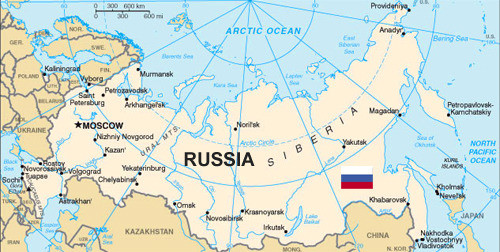Good News and Bad about Upcoming Elections, Golos Leader Says

(Paul Goble – Window On Eurasia – Staunton, Sept. 11, 2021)
The good news about the upcoming Duma elections is that the Russian people are significantly more focused on threats to the integrity of the elections and their outcomes than in the past, Stanislav Andreychuk says. But the bad news is that this vote may be the last except for a presidential election in 2024.
The Putin regime has used four chief methods to ensure that elections produce the results it wants, the leader of the Golos Defense of Voters’ Rights says. They include government control over who can run, government control of the media, forced voting, and direct falsification of results (ridl.io/ru/poslednie-vybory/).
To judge from some recent commentaries, Andreychuk says, one might conclude that the current election is the worst ever; but in fact, if one examines each of the four methods the Kremlin has used, this election is far from the worst in the last 20 years. Indeed, the fact that people are so concerned is a positive development.
Unfortunately, however, he continues, there are several reasons to think that the upcoming Duma elections will be subject to more falsification than ever before and even more reason to think that the regime is tired of playing this game and may simply decided not to hold elections anymore.
First of all, despite the prominent coverage given to the Kremlin’s exclusion of candidates from this election, the fact is that there have been elections during the past 20 years where the situation was even worse. When all Duma seats were filled by party lists as in 2007 and 2011, central control was greater.
By regulating the percentage parties had to get to advance deputies into the Duma, the Kremlin could effectively control who was there and who was not. But now half of the deputies come from single-member constituencies where candidates not linked to any party are in principle able to run. That makes the center’s job of excluding its opponents harder.
Second, the authorities have been able to control the media scene too far more effectively in the past than this time around because of the rise of the Internet. Government media still boost United Russia but social media are being used to far better effect by the opposition. As far as demonstrations are concerned, the pandemic has helped the regime.
Third, the regime has relied on mobilizing its supporters by pushing members of groups known to be in its corner to take part in the voting. There is little evidence to suggest it is doing more of that now, and there is some that there are fewer groups which are not divided between regime supporters and regime opponents, thus limiting the effectiveness of this approach.
And fourth, there is outright falsification on the day of the voting. There, Andreychuk says, there are real concerns that the situation this time around may in fact be worse. Not only are elections occurring over three days, giving new possibilities for manipulation of results, but there is also voting via the Internet.
The latter has drawn a great deal of concern, he says; but it is important to remember that it is taking place in only seven federal subjects and that only in two – Moscow city and Rostov – is it likely to be sufficiently large to affect results. Elsewhere the regions will remain divided among those with massive falsifications, those without and those in between.
“All this tells us,” the Golos leader says, “that there is nothing special in the way the current elections are being conducted” compared to the past. The chief distinction of the balloting this time around is the product of developments in Russian society that the authorities don’t know how to effectively counter.
“Ten years ago a mass movement of observers appeared. About five years ago, Russian NGOs and politicians learned to collect donations” large enough to give them a kind of independence. “Two years ago there were the first protests against the failure to register candidates and not just the falsification of results,” Andreychuk says.
“And now, the state’s monopoly on the media sphere is collapsing,” and its ability to count on any given group to deliver all its votes to the party of power has come into question. New and more repressive laws are an attempt to counter this, but the Kremlin isn’t confident that they will work and isn’t displaying the confidence it did before earlier elections.
In fact, the voting rights activist says, “the current situation looks more like deep defense” by the powers that be rather than a new advance. “And this is relatively good news.” The bad, however, is that these admittedly imperfect elections may be the last except for the presidential vote in 2024.
If that proves to be the case, the advances that voting rights activists have made will be reduced to little, and the political struggle will change dramatically shifting from courts and polling places to the streets.
[article also appeared at windowoneurasia2.blogspot.com/2021/09/good-news-and-bad-about-upcoming.html]
